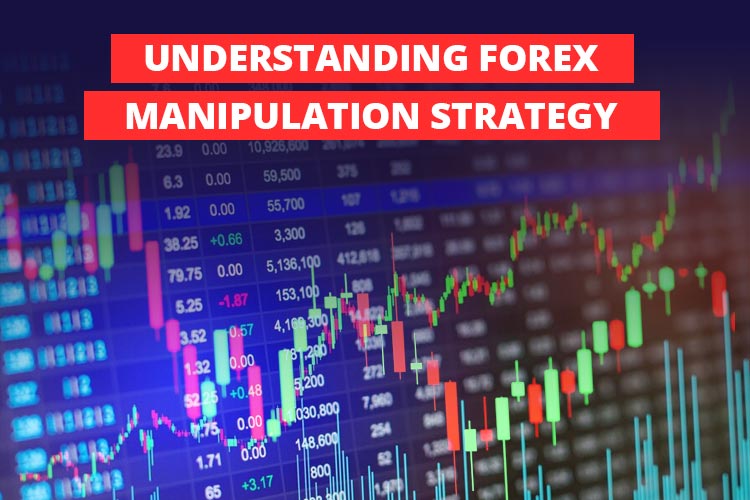The forex market, a decentralized global marketplace for currency exchange, boasts immense liquidity and around-the-clock trading․ This often leads traders, especially newcomers, to wonder if forex brokers can manipulate prices to their advantage․ While the market is largely unregulated compared to stock exchanges, the possibility of manipulation, although difficult to execute on a large scale, does exist․ Understanding the factors that might contribute to price manipulation and recognizing the safeguards in place is crucial for all forex traders․ This article will explore the potential for manipulation, common tactics, and how to protect yourself․
Understanding Forex Market Dynamics and Potential Broker Influence
The forex market operates differently from traditional exchanges․ Instead of a central authority setting prices, currency values are determined by supply and demand through a vast network of banks, financial institutions, and individual traders․ This decentralized nature makes widespread manipulation extremely challenging․ However, certain brokers, particularly those operating in less regulated jurisdictions, could potentially engage in unethical practices․
Common Tactics Potentially Used for Price Manipulation
- Stop-Loss Hunting: Brokers trigger stop-loss orders to profit from traders’ losses․
- Price Gaps: Artificially creating gaps in the price chart to force traders to close positions at unfavorable rates․
- Delayed Order Execution: Intentionally delaying order execution to benefit from price fluctuations․
- Quote Stuffing: Bombarding the trading platform with excessive quotes to confuse traders and disrupt trading algorithms․
It’s important to note that these tactics are illegal and unethical, and reputable brokers actively avoid them․
Safeguarding Your Trading: How to Identify and Avoid Unethical Brokers
- Choose Regulated Brokers: Opt for brokers regulated by reputable authorities like the FCA (UK), ASIC (Australia), or CySEC (Cyprus)․ Regulation provides a layer of protection and oversight․
- Research Broker Reputation: Read reviews and testimonials from other traders to gauge the broker’s reliability and ethical practices․
- Understand Trading Conditions: Carefully review the broker’s terms and conditions, including spreads, commissions, and execution policies․
- Use Demo Accounts: Practice trading on a demo account to familiarize yourself with the platform and trading conditions before risking real money․
- Monitor Your Trades: Keep a close eye on your trades and report any suspicious activity to the broker and regulatory authorities․
Comparing Regulated vs․ Unregulated Forex Brokers
| Feature | Regulated Brokers | Unregulated Brokers |
|---|---|---|
| Oversight | Subject to strict regulatory oversight․ | Limited or no regulatory oversight․ |
| Security of Funds | Often offer segregated client accounts and compensation schemes․ | Higher risk of fund mismanagement or loss․ |
| Transparency | Required to disclose trading conditions and pricing policies․ | Potentially less transparent in their operations․ |
| Dispute Resolution | Offer avenues for dispute resolution through regulatory bodies․ | Limited recourse in case of disputes․ |
The Role of Market Makers and ECN Brokers
The type of broker you choose can also influence the potential for manipulation․ Market makers, who act as the counterparty to your trades, have a theoretical conflict of interest․ ECN (Electronic Communication Network) brokers, on the other hand, connect traders directly to the interbank market, potentially reducing the risk of manipulation․ However, even with ECN brokers, slippage and other factors can affect execution prices․ Always carefully consider the type of broker and their business model․
Factors Contributing to a Broker’s Credibility
- Transparent Fee Structure
- Responsive Customer Support
- Clear and concise Terms of Service
- Positive online reputation and reviews
- Secure and reliable trading platform
FAQ: Forex Price Manipulation
Q: Is it easy for a forex broker to manipulate prices?
A: While technically possible, widespread and consistent manipulation is difficult due to the size and decentralized nature of the forex market․ However, smaller, less regulated brokers may be more prone to unethical practices․
Q: How can I tell if my broker is manipulating prices?
A: Look for unusual price spikes, delayed order execution, frequent slippage, and discrepancies between your trading platform and other market data sources․
Q: What should I do if I suspect price manipulation?
A: Document the suspicious activity, contact your broker’s customer support, and report the issue to the relevant regulatory authorities․
Q: What are the benefits of using a regulated broker?
A: Regulated brokers are subject to oversight, provide greater security for your funds, and offer avenues for dispute resolution․
The forex market, despite its vast size and liquidity, isn’t immune to the potential for unethical practices․ While large-scale manipulation is difficult, smaller brokers in unregulated jurisdictions could engage in activities that disadvantage traders․ Choosing a regulated broker is the single most important step you can take to protect yourself․ Thorough research, careful monitoring of your trades, and a healthy dose of skepticism are also essential․ By understanding the risks and taking proactive measures, you can navigate the forex market with greater confidence and safeguard your trading capital․ Remember to always prioritize your financial safety by selecting a trustworthy and well-regulated brokerage firm․

